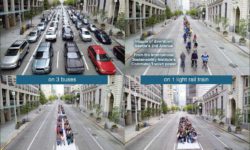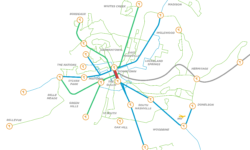Regional Measure 3: Bad For Commuters, Great For Contractors and Business
Just look at the list of funders of the campaign for Regional Measure 3, the proposed $3.00 bridge toll increase. High-tech is all over asking the public to pay to fix the congestion caused by their adding large numbers of employees to an already crowded region.


